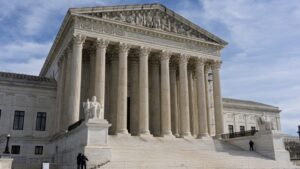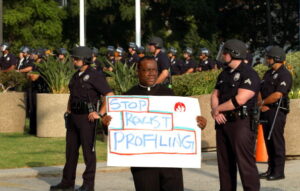In a significant legal maneuver, the Trump administration has hinted at the possibility of suspending habeas corpus, a cornerstone of legal rights in the United States, following a series of legal defeats concerning its immigration policies. This potential shift could have profound implications for those detained under criminal and immigration statutes.
Understanding Habeas Corpus
Habeas corpus, a vital legal procedure, allows individuals detained by the government to contest the legality of their detention. This remedy is accessible to both U.S. citizens and noncitizens, providing a court with the authority to order the release of an individual if their detention is found to be unlawful. The term, rooted in Latin, translates to “you should have the body,” emphasizing the court’s role in physically assessing the legality of someone’s confinement.
The origins of habeas corpus date back to 1215 with the signing of the Magna Carta, aimed at protecting subjects from arbitrary detention by the king. Recognizing its importance, the U.S. framers incorporated habeas corpus into the Constitution, stating, “The Privilege of the Writ of Habeas Corpus shall not be suspended, unless when in Cases of Rebellion or Invasion the public Safety may require it.”
The Role of Habeas Corpus in Legal Challenges
Habeas corpus is frequently invoked in criminal justice, especially when a state crime conviction is believed to contravene federal law. It ensures that individuals’ rights, such as protection from unreasonable search and seizure, are upheld, acting as a critical check on state powers. Additionally, it serves as a mechanism for contesting the legality of convictions or sentences beyond direct appeals to higher courts. However, despite its prevalence, with approximately 12,000 cases filed annually, success in habeas petitions remains elusive, with only a little over 10 percent success in capital cases and less than 1 percent in others.
Limitations on Habeas Corpus
The scope of habeas corpus has been curtailed by both courts and Congress. It is most effective when new facts emerge that were not available during the original trial. For instance, detainees may argue ineffective legal representation or unlawful evidence suppression. Yet, federal courts typically restrict the relitigation of issues already raised, maintaining the finality of state court decisions.
Further barriers arise from legislative measures such as a 1996 law that limits federal court intervention unless state court rulings substantially violate Supreme Court precedents. This has led to contentious outcomes, with federal courts often refraining from addressing perceived injustices.
Habeas Corpus in Immigration Contexts
Traditionally, habeas corpus offered a means to contest deportation orders. Although Congress has narrowed this application, it remains a tool for challenging unlawful immigration detentions and deportations outside the regular immigration code. Under the Trump administration, habeas petitions have been pivotal in opposing immigration policies, particularly those related to the Alien Enemies Act of 1798.
Courts have historically allowed detainees, including Venezuelan immigrants accused of gang affiliations, to file habeas petitions against their detention under the Alien Enemies Act. These petitions have successfully argued against such detentions, preventing further deportations without judicial review.
Presidential Powers and Habeas Corpus
While the Trump administration has contemplated suspending habeas corpus, this authority resides solely with Congress. The Constitution’s Suspension Clause, positioned in Article I, reserves this power for Congress and only under circumstances of rebellion or invasion. Historically, habeas corpus has been suspended four times, with Congress playing a decisive role in each instance.
These suspensions include President Lincoln’s controversial action during the Civil War and subsequent Congressional approval, as well as targeted suspensions during Reconstruction, a rebellion in the Philippines, and after the Pearl Harbor attack. Legal experts largely concur that the executive branch lacks unilateral authority to suspend habeas corpus.






